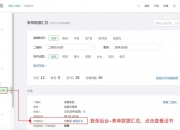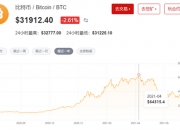当打开手头这本《区块链简史》的时候,随手就翻到了“区块链原理”一章,里面介绍分布式系统创造者莱斯利?兰伯特的那一段,立刻就吸引了我的兴趣。
When I opened the book The Brief History of Block Chains, I went to the chapter on the Principles of Block Chains, which introduced Leslie Lambert, the creator of the distributed system, and immediately attracted my interest.

《区块链简史》,朱玮、吴云、杨波 著,中国金融出版社2020年4月出版
书中提到,兰伯特在学术上有个习惯,喜欢用故事和神话描述算法,1990年,他发明了Paxos算法,该算法现在依然支撑着云计算,他将论文提交给国际计算机协会,结果被退稿,审稿人的意见大概是:“您能用数学语言来写稿吗?这篇稿子我们帮您投到神话与传说杂志好不好?”兰伯特很不高兴,在大会上批评审稿人毫无幽默感。这篇论文迟发了10年。2001年兰伯特同意修改论文,但文中还是长篇的故事,兰伯特说了一句振聋发聩的名言:
The book mentions that Lambert has an academic habit of using story and mythography algorithms. In 1990, he invented the Paxos algorithm, which is still supporting cloud computing, and that he submitted the paper to the International Computer Association, the results of which were rebutted. The view of the examiner is probably: "Can you write in mathematical language? Can we put it in mythology and mythology magazine?" Lambert was upset and criticized the examiners for lack of humor in the General Assembly. This paper was issued 10 years late. In 2001, Lambert agreed to revise the paper, but it was a long story.
“故事能说清楚的道理,干嘛要用数学呢?”
"Why do you use math when the story makes sense?"
如饥似渴地读完这本书之后才发现,这句话原来是这本书的题眼,关于虚拟货币、区块链所涉及到的艰深密码学原理、工程技术,本书并没有使用一个公式表格,取而代之的是一个个鲜活历史人物,一段段生动曲折的历史故事。
When the book was read with hunger and thirst, the phrase was originally the subject of the book, which did not use a formula table to replace it with a living historical figure, a living and twisted historical story, about the difficult cryptography and engineering techniques involved in virtual currency, block chains.
兰伯特的话有点反常识,但极为深刻。在绝大部分人的认识当中,严肃的学术类文献就应该使用数学来表述,这样才有简洁清晰的逻辑,大众通俗的读物可以讲讲故事神话,这样比较轻松便于消遣。大体上,这种认识是没错的,世界上的各种出版物也大致遵照着这个认识,但也正是这种认识,造成了阅读者无法言说的困扰——对于各种讲述知识的出版物理解上的困扰——一份使用数学,逻辑上简洁清晰的文稿,反而挤压了其被阅读者理解的空间,散发出更多神秘主义的光芒。
Lambert’s words are a bit out of the ordinary, but extremely profound. In the vast majority of people’s minds, serious academic literature should be expressed in mathematics, so that there is a clear logic of simplicity, and popular readings can tell storytelling myths, which is easier to entertain.
为解释上面这段话以及兰伯特的观点,我们可以回顾一下大学里面学习微积分的经历:几乎每一本微积分的教材,开篇必然会讲极限,以及使用ε-δ语言来描述极限。因为极限是微积分的基础,只有使用ε-δ语言才能清晰地描述那些飘渺虚无的无穷大和无穷小。以这种方式阐释的教材形式上如此完整清晰,以至于任何看不懂教材的人,只能惭愧地自认智商过低,不适合学习。
To explain the above and the view of Lambert, we can look back at the experience of learning calculus in universities: almost every textbook with calculus, the opening of which necessarily speaks the limits, and the use of the platinum language to describe the limits. Because the limits are the basis of the calculus, only the platinum language is able to describe clearly the infinity and the infinity of the non-existent.
遗憾的是,牛顿也不适合学习微积分,因为他在世的时候,也根本弄不懂这些极限,在他那本《自然哲学的数学原理》一书当中,关于无穷的描述是极为模糊和矛盾的,以至于他那个著名的反对者大主教贝克莱说,牛顿数学里面的无穷小就像个幽灵,一会儿存在,一会儿又消失了。事实上,牛顿发明微积分的时候,确实没有想明白关于极限的事情,他凭借着自己无与伦比的天赋,搭建了微积分的骨架,但微积分艰深精微的基础,在牛顿死后的两百多年里,才由一代代数学家逐步完善。人类对未知的探索和认知总是无比艰辛曲折的,教材上那漂亮干净的一页纸,也许就是十几代人、几十代人艰难奋斗的结果,只不过期间的跌跌撞撞百转千回已经被抹掉罢了。
Unfortunately, Newton was not fit to learn calculus either, because when he was alive, he had no idea of the limits. In his book The Mathematics of Natural Philosophy, the inexhaustible description was so vague and contradictory that his famous opponent, Bishop Berkeley, had said that Newton mathematics was as small as a ghost for a while, and then disappeared. Indeed, when Newton invented the limits, he did not realize that he built the calculus from his own incomparable talent, but that the calculus was so deep that it was built by a generation of mathematicians more than 200 years after the death of Newton.
所以,看不懂这样的教材才是一个人该有的反应,能一下子看懂才是不正常的怪事。法国数学家伽罗华曾经非常尖锐地批评高斯,说他像一只老狐狸,小心翼翼地用尾巴扫掉自己在沙滩上留下的痕迹。伽罗华的意思是,高斯每次发表的论文都可以掩盖自己思维的历程痕迹,只留下逻辑上无比正确光鲜的演绎,看到论文的人根本无法理解高斯为啥会有这样天才的灵感,失去了理解的空间,只剩下跪下来膜拜的念头。
So it's a strange thing not to understand a person's reaction when he doesn't understand it. The French mathematician Garowe used to criticize Gaussian very sharply, saying that he, like an old fox, was careful to wipe his tail off the marks he left on the beach. Garowe meant that every paper he published could cover up his thinking trails, leaving only a logical glimmer of light, and that those who saw it simply could not understand why Gausssian had such a brilliant inspiration and lost the space to understand.
因此,如果我们想真正理解某个领域的知识,那就一定要回顾产生这个领域知识的历史,跟着那些勇敢坚毅的头脑,重温一遍那幽暗离奇又生动有趣的人类认知的历程。看完历史,我们才能重新发现那些按照逻辑被整理成平面、充满着教条和神秘色彩的教材、论文,画面被展开成一幅立体的、流淌的、色香味俱全的影像。真正地理解发生在历史和逻辑的统一之处。
So, if we really want to understand a field of knowledge, we have to look back at the history of the knowledge in this field, and follow those brave and tenacious minds, and relive the history of the dark, strange and interesting human perception. When we look at history, we will be able to rediscover those educational materials and papers that are logically organized in plain form, full of dogma and mythology, and that are shaped into a stereo, fluid, colourful image. A true understanding of the unity of history and logic occurs.
之所以讲上述数学的例子,是因为数学正是区块链技术的根基。英国数学家哈代曾为他的纯理论、不和现实世界发生任何联系的数学感到十分自豪,他断言:“我的发现今天没有,将来也不会给世界带来丝毫影响——无论这种影响是直接还是间接的,有益抑或是有害的。”但他错了!他的一项研究成果被命名为“哈代-温伯格定律”,是遗传学家用来研究人口进化的基础。哈代后来又在其名著《一个数学家的辩白》中声称:“还没有人发现数论能用于战争目的。”很明显,他又错了!密码学对于现代战争绝对不可或缺,而数论正是现代密码学的基础。哈代更加不可能知道,密码学又衍生出区块链技术,进一步创造出虚拟货币。
The above-mentioned example of mathematics is because mathematics is the foundation of block-chain technology. British mathematician Hades was very proud of his pure theory, his lack of any connection with the real world. He asserted: “My discovery today does not and will not have the slightest impact on the world — whether direct or indirect, beneficial or harmful.” But he was wrong. One of his findings was named the “Hadey-Winberg Law”, the basis on which geneticists used to study demographic evolution.
天才如哈代,依然看不懂人头脑中的理念能在现实的土壤中开出怎样的花朵。因为历史自身演化的精彩程度远超过人类所拥有的想象力。如果我们认真读这本《区块链简史》就会发现,从纯数学到密码学,再到区块链技术,再到技术的具体应用,这只是书中的一条较为明显的主线,但书中还隐含着一条更为宏大隐晦的暗线:这也是政治经济领域几乎最重要的一个问题——人与人之间如何实现合作。由此产生了一系列的思考:何为市场?何为货币?何为契约?如何监管?等等。单单是纯粹技术路线的演进就已经足够复杂,当技术与思想激烈碰撞,注定会是一首无比华丽的乐章。
Genius, like Hades, still doesn't see how ideas in human minds can be flowered in a realistic soil. Because history itself evolves much better than human imagination. If we read this short history of block chains, we find that the evolution of pure mathematics to cryptography, to block chain technology, and to the specific application of technology is only a more obvious thread in the book, but it also contains a much larger and more subtle dark thread: one of the most important issues in the political economy -- how people work together. This leads to a series of thinking: what is the market? What is the money? How is the contract?
如果你想真正理解区块链,那就来读这本《区块链简史》吧!这里有哈耶克关于私人货币深沉思考,大卫?乔姆同强力部门的倔强抗争,有尼克?萨博的比特黄金,有神龙见尾不见首的中本聪;这里还有千百年来围绕着“加密”和“解密”的无休止的、波澜壮阔的智力竞争,还有密码朋克、极客天才们想以一己之力单挑这个世界统治秩序的浪漫和癫狂。几位作者不仅熟稔技术,也精通人文,擅长写作,故事酣畅淋漓,痛快之余更能理解人类每一次探索未知的曲折艰辛和万千气象。
If you really want to understand the chain of blocks, read the short history of the block chain. Here's Hayek's deep thoughts about the private currency, David. Chom and the stubbornness of the power sector. Nick Saber's gold has a middle-blind mind; there's a thousand years of endless, aggressive intellectual competition around “encryption” and “declassification”, and a code punk, a great talent who wants to challenge the world's dominant order with one hand.
从虚拟货币到区块链,这一场思想与技术的碰撞,还在不断持续地发生着连锁的绚烂反应,你我皆是看客,又被其洪流裹挟其中,那就干脆躬身入局吧!
From the virtual currency to the block chain, this idea and technology collided, and there was a continuous chain of scavenging reactions, and you and I were visiting and being held hostage by its currents, so just step into the game!
(作者张江磊为资深债券从业人员,供职于中国银行间市场交易商协会)
(The author, Zhang Jiangjing, is a senior bond practitioner working for the China Interbank Market Dealers Association)
注册有任何问题请添加 微信:MVIP619 拉你进入群

打开微信扫一扫
添加客服
进入交流群


















发表评论